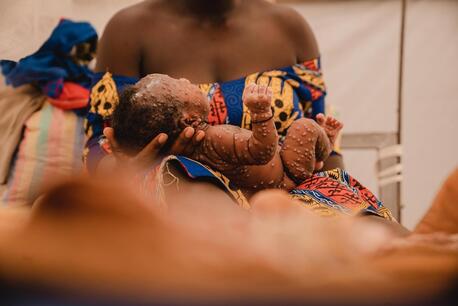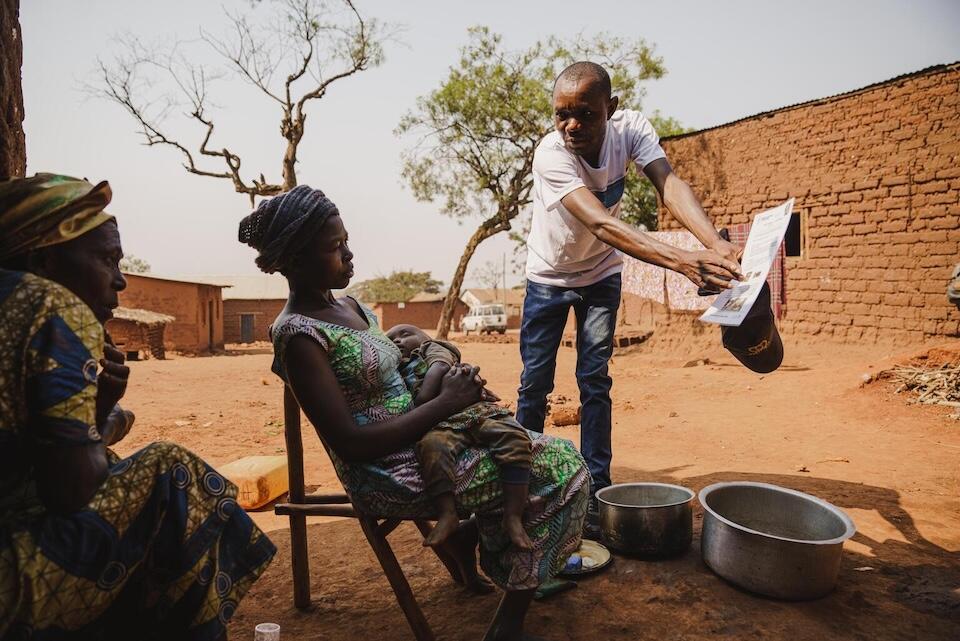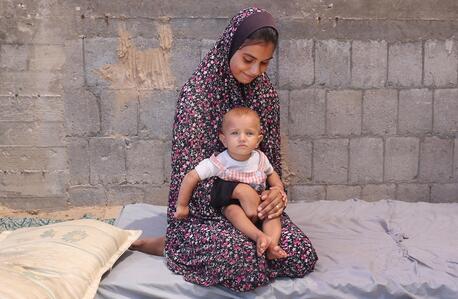
How UNICEF Fights Mpox in Democratic Republic of the Congo
Mpox cases are on the rise in Africa, and children are particularly at risk. Learn what UNICEF is doing to protect children and stop the spread — and how to help.
Children are at the sharp end of an expanding outbreak of mpox
As the number of mpox cases rises across Africa, UNICEF is supporting local health care systems to provide urgent care for children with the viral disease, along with medicines, hygiene supplies and risk communication support to raise community awareness on how to prevent its spread.
Previously known as monkeypox, mpox affects children disproportionately; more than half of all reported cases are among children younger than 15. Children, especially those with malnutrition or other underlying health conditions, are also more at risk of dying from the viral disease.
Confirmed mpox cases in six African countries
On Aug. 14, 2024, the World Health Organization declared the outbreak a public health emergency of international concern. More than 15,600 mpox cases have been reported in the Democratic Republic of the Congo (DRC) alone. By Aug. 22, over 200 confirmed cases had been detected in Burundi, Rwanda, Uganda, Kenya and South Africa.
UNICEF is stepping up its response across the region. "In the fight against the Mpox outbreak, prioritizing the needs of children is not just necessary—it's urgent," said UNICEF Regional Director for Eastern and Southern Africa, Etleva Kadilli. "Their heightened vulnerability requires that we dedicate our full attention and resources to ensure their protection and well-being in this critical response phase.”
Learn more about mpox, its symptoms and how to stay safe.

UNICEF community mobilizers go door-to-door sharing important messages about mpox and how to stop its spread
UNICEF distributes handwashing kits and disinfectant to prevent the spread of mpox, and trains community workers who go from house to house sharing important information about the disease and answering any questions.
UNICEF is providing health facilities with emergency health kits to treat mpox, but the need far exceeds the supply. Without immediate action and additional funding, the consequences for children will be severe.
Support UNICEF. Donate today.
Learn more about the mpox outbreak and UNICEF's response.
HOW TO HELP
There are many ways to make a difference
War, famine, poverty, natural disasters — threats to the world's children keep coming. But UNICEF won't stop working to keep children healthy and safe.
UNICEF works in over 190 countries and territories — more places than any other children's organization. UNICEF has the world's largest humanitarian warehouse and, when disaster strikes, can get supplies almost anywhere within 72 hours. Constantly innovating, always advocating for a better world for children, UNICEF works to ensure that every child can grow up healthy, educated, protected and respected.
Would you like to help give all children the opportunity to reach their full potential? There are many ways to get involved.





